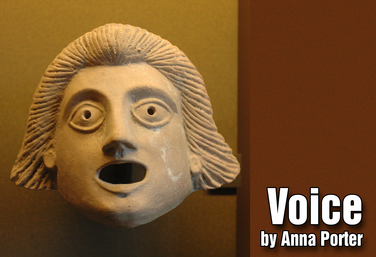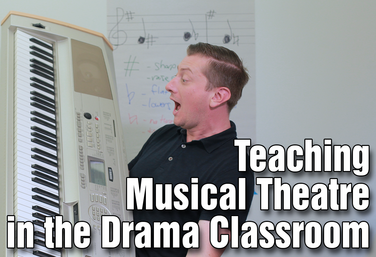Alberta, Canada
Speech Drama 10
View all Standards for Alberta, Canada
6 perform exercises to relax and improve the movement of the articulators
Part of the Drama One Curriculum
Voice
by Karen Loftus
This unit focuses specifically on the technical aspects of vocal production. By understanding how voice is created, students will be more aware of how to improve their vocal production. Students will explore posture and breathing exercises, as well as how to use the diaphragm, projection, and articulation. The final project will test students’ ability to properly project and articulate a joke across a large space.
Read More...
Read Less...
Voice
by Anna Porter
In this unit, students will be introduced to a key element of performance: the voice. Students will explore how to thoughtfully communicate character, story, and emotion vocally. Students will begin by exploring articulation so that they understand the importance of clearly communicating their words onstage. They will further build on this with the following lesson on the different vocal varieties of pitch, tone, rate, and volume.
The final lesson helps students explore vocal characterization as well as the details and layers that can bring that character to life vocally. This unit study of the voice culminates in a final puppet show where students are asked to bring a story and character to life by using vocal variety, articulation, and characterization.
Read More...
Read Less...
Shakespeare Performance
by Anna Porter
In this unit by Anna Porter, students are introduced to the works of Shakespeare and explore how to bring a character to life in a monologue performance. Students are also introduced to the tools to help them unlock meaning in Shakespeare’s text. Through this eleven lesson series, students will participate in class discussions, activities and performance. Assessment tools include informal assessment, submission of textual analysis work and a final performance.
Read More...
Read Less...
Unlocking Shakespeare's Text
by Anna Porter
Shakespeare’s text holds valuable tools that students can use to unlock and understand meaning. In this unit by Anna Porter, students explore how to use the tools of research, context, textual analysis, imagery and punctuation to help them unlock meaning in Shakespeare’s text. This unit is created for an Intermediate to Advanced drama class with a basic background in plot structure and acting technique.
Through this five lesson series, students will use journals, participate in class discussions, activities and performance to explore the tools used to unlock a text. Assessment tools include informal assessment as well as a final group presentation and performance.
Read More...
Read Less...
Part of the Distance Learning Curriculum
Voice
by Lindsay Price and Karen Loftus
This unit focuses specifically on the technical aspects of vocal production. By understanding how voice is created, students will be more aware of how to improve their vocal production. Students will explore posture and breathing exercises, as well as how to use the diaphragm, projection, and articulation. The final project will test students’ abilities to properly project and articulate a joke at a distance from a microphone
Read More...
Read Less...
Spoken Word Poetry
by Quincy Young
In this unit, students will create a performance of a spoken word poem designed to engage, entertain, and affect an audience. They will also write a poet’s statement in which they describe the purpose(s) or inspiration(s) of their poetry.
This is not a technical writing unit and is geared more toward students self-expression and engaging an audience. If your students are not skilled poets, this unit is still accessible.
Read More...
Read Less...
Friendly Shakespeare
by Todd Espeland
Friendly Shakespeare teaches a simple and effective method of script analysis for Shakespeare. It uses punctuation and keywords in the text to help students understand the characters' needs, make specific acting choices, and get them on their feet immediately.
This is not dry, sitting in a classroom discussion. It’s physicalizing the text, focusing on the character’s needs and tactics (something every drama student should know full well) and bringing Shakespeare to life.
At the end of the class you will be able to demystify Shakespeare's text and understand how to help your actors make clear, active and emotionally connected choices in Shakespeare's plays.
Read More...
Read Less...
Teaching Musical Theatre in the Drama Classroom
by Colin Oliver
Colin Oliver leads this introduction to teaching Musical Theatre in the Drama Classroom.
In this course, you will learn how to build musical theatre into your dramatic courses of study. “Why might you want to do that? Singing is scary! You want me to teach my students how to do it? I don’t even know how to do it.” This course approaches musical theatre preparation performance much as we would approach preparing a monologue in drama. If you use script analysis in monologue preparation in your class, you can teach musical theatre.
By the end of this course, you’ll have a great, full-body physical warm-up, a student-driven research assignment, character development exercises, a little bit of musical theory, and a performance assignment complete with assessment.
So, join us for teaching Musical Theatre in the Drama Classroom. It’s as easy as Do-Re-Mi!
Read More...
Read Less...
View all Standards for Alberta, Canada Standards Master List
© Copyright 2015-2025 Theatrefolk







